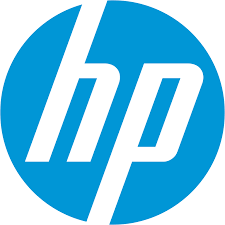HP Inc. (NYSE: HPQ) has announced the launch of HP Enterprise Security Edition, a unique suite of security capabilities designed to enhance the physical security of HP business class PCs.
This was disclosed in a statement released on November 21, 2024
HP Enterprise Security Edition includes multilayered safeguards to protect PC hardware and firmware from targeted physical attacks, while giving IT admins unparalleled visibility to help detect unauthorized firmware, and component tampering throughout a device’s lifecycle.
The rise of hybrid work and Work from Anywhere (WFA) has increased the risk of PCs being compromised by attackers with brief physical access, underscoring the need for protection and visibility into the integrity of devices throughout their lifetimes. Over half (51%) of ITSDMs are concerned that they cannot verify if PC, laptop or printer hardware and firmware have been tampered with during transit.
READ ALSO: HP Revolutionizes Future Of Work With Cutting-Edge AI Innovations
HP Enterprise Security Edition help defends against such attacks by preventing harm to hardware and firmware layers in the PC, while also enabling IT teams to check if hardware and firmware have been altered by malicious third parties during a device’s lifetime.
“Physical attacks are riskier and more difficult to perform, so they are typically targeted and organized – for instance, as part of a nation-state campaign or corporate espionage. But the lucrative market for selling access to corporate networks means more opportunistic attacks – spotting an unattended PC and briefly plugging in a ThunderboltTM device – could be worth the risk for a cybercriminal.” Dr. Ian Pratt, Global Head of Security for Personal Systems at HP Inc., stated.
Pratt continues, “By tampering with device hardware and firmware, attackers can gain an almost undetectable foothold on a device, which could help them gain access to a corporate network or mount destructive attacks. This is attractive to bad actors, providing them with unparalleled visibility and control – and multiple ways to monetize.”
To combat these physical cyber threats, HP Enterprise Security Edition equips PCs with the following multilayered protection capabilities:
READ ALSO: Digital Literacy: HP, WARIF Collaborate To Empower Young Females Against SGBV
Firmware Lock: User-controlled lock implemented at the firmware level and used in conjunction with HP Sure Admin. Once Firmware Lock is activated, HP Sure Admin’s cryptographic password-less authentication process is used to unlock the PC. This provides substantially.
stronger protection than a standard operating system lock when a PC is left unattended, preventing a bad actor from even being able to interact with system boot or attempt to start the operating system.
Platform Certificates: These digital certificates enable customers to validate that hardware and firmware components have not been modified since manufacturing, such as disk, memory, processor, BIOS/firmware version, or PCIe devices and the trusted platform module. This offers visibility and detection of unauthorized modification of device hardware and firmware components.
Sure Start Virtualization Protection: Pre-boot protection from malicious or compromised third-party hardware being plugged into a ThunderboltTM/USB C or PCIe port. Third-party firmware runs inside a micro-virtual machine, protecting device hardware and firmware, and preventing the device from being infected by malicious third-party firmware.
HP Enterprise Security Edition delivers platform integrity protection capabilities by ensuring the hardware and firmware beneath the operating system are more secure and resilient to physical attacks.
This enables organizations to manage risk to their endpoint device supply chain by validating hardware and firmware integrity prior to device onboarding. Importantly, this will help organizations implement strong governance and controls over the security of their PC hardware and firmware across their device lifecycle. Finally, end users can be confident and reassured that their sensitive data is protected however and wherever they work.
Dr. Ian Pratt, Global Head of Security for Personal Systems at HP Inc., further stated that “Securing PCs from physical attack is often overlooked, but if bad actors want your data badly enough, they’ll go to any lengths to obtain it. Whether it’s from executives traveling for work and leaving a laptop in an insecure hotel room or stepping away in a cafe to buy a coffee, there are many ways devices could find themselves exposed.”
“Preventing cyber-attacks on the hardware and firmware of a device is key to maintain integrity of an organization’s PC endpoint supply chain. HP Enterprise Security Edition introduces new defensive capabilities for PC hardware and firmware. This will help safeguard data and protect the integrity of the PC fleet, while shining a light on threats lurking below the operating system surface, where traditional security tools can’t go.” Pratt added.
The new HP Enterprise Security Edition is available for select PC platforms.
